5 Things Moving to Denmark Taught Me About Time and Productivity ⏰
What could I learn from a society known for digital organization and efficiency? Plenty.
There’s something interesting that happens when you move abroad — before long, you realize that the “American way” isn’t the only way. And, sometimes, is also not the best way.
That’s not to say that the US isn’t absolutely crushing in some areas (nachos, anyone?) but when it comes to time and productivity? I think she has some things to learn.
So, here are five things that are done differently in Denmark (along with most of the world), that I have adopted since relocating and now swear by.
🔢 Week Numbers, FTW
Some industries in the US utilize week numbers (publishing, for example) but a lot of my fellow Americans aren’t familiar with them and certainly don’t communicate with them the way most Europeans do.
For example, “Do you want to come over during week 24?” would be a perfectly normal thing for someone to ask. And quite often, people know what week 24 is without needing to consult a calendar — as well as which week number corresponds to most major holidays.
What I’ve learned is that this is a far more efficient way to communicate and make plans. You no longer have to say “What are you doing the week of June 9-15?” You can just say “What are you doing week 24?” Or if you have a recurring trip you do each year with your friends, you might know that it is “annually on week 30” rather than needing to say it’s “annually on the last weekend in July”.
Clean, simple, logical. I love it. If you want to start thinking in week numbers, try adding them to your Google Calendar with these steps:
In the web version:
Go to calendar.google.com
Click on the gear icon in the upper right corner > settings > view options.
Check the box next to Show week numbers.
In the mobile app:
Open the Google Calendar app.
Tap the Menu icon (three lines) > Settings > general > view options.
Toggle Show week numbers to the "on" position.
🗓️ Monday Start Just Makes Sense
I’ve been designing calendars for fifteen years, and I use to roll my eyes when I’d get a message asking if I could “Please make a Monday-start version.”
Like who are all these people using Monday-start calendars? Most of the world, it turns out.
As far as I have been able to discern, the Sunday-start calendar is rooted in religious beliefs — designating Sunday as the start of the week because it is seen as a day for rest or worship. Fair to say that most of us now see Monday as the start of our week, regardless of our religious views and because Monday-start aligns better with our schedules and technology.
When calendars are designed to start with Monday instead of Sunday, everything falls into place. It perfectly syncs up with that trusty Monday-Friday work grind, and keeps Saturday and Sunday snuggled up together at the end of a row — creating a space that is easier to utilize for planning. This also avoids chaos with week numbers (see above!) where Saturday and Sunday might fall into different weeks on a Sunday-start calendar, as Sunday usually carries down to the row below on a Sunday-start layout.
And if I haven’t convinced you already, my last argument here is ISO 8601, the international standard covering the worldwide exchange and communication of date and time-related data — which clearly designates Monday as the first day of the week. ISO 8601 has been adopted by a long list of countries, including the United States, making it even sillier that we continue to disagree on our preferred calendar layouts?!
The headache of this continues into our digital use of calendars, too, as most websites need to display either a Monday or Sunday calendar based on the geographic location of the user. A challenge both for designers, and end-users — just ask any Sunday-start-calendar-using-American who has been traveling in Europe and accidentally booked their Friday hotel, flight, or train tickets for Saturday due to the calendar switching on them in-browser (been there, done that).
And so, eventually and somewhat begrudgingly, I have made the switch to Monday-start calendars and my brain is happier for it (you can download my free printable 2025 calendars here). Your Google Calendar can easily switch between the two using these steps:
On a computer:
Go to calendar.google.com
Click the gear icon in the upper right corner > settings > view options
Under "Start week on", select "Monday".
On the mobile app (Android or iOS):
Open the Google Calendar app.
Tap the Menu icon (three horizontal lines) > settings > general.
Tap "Start week on" > select "Monday".
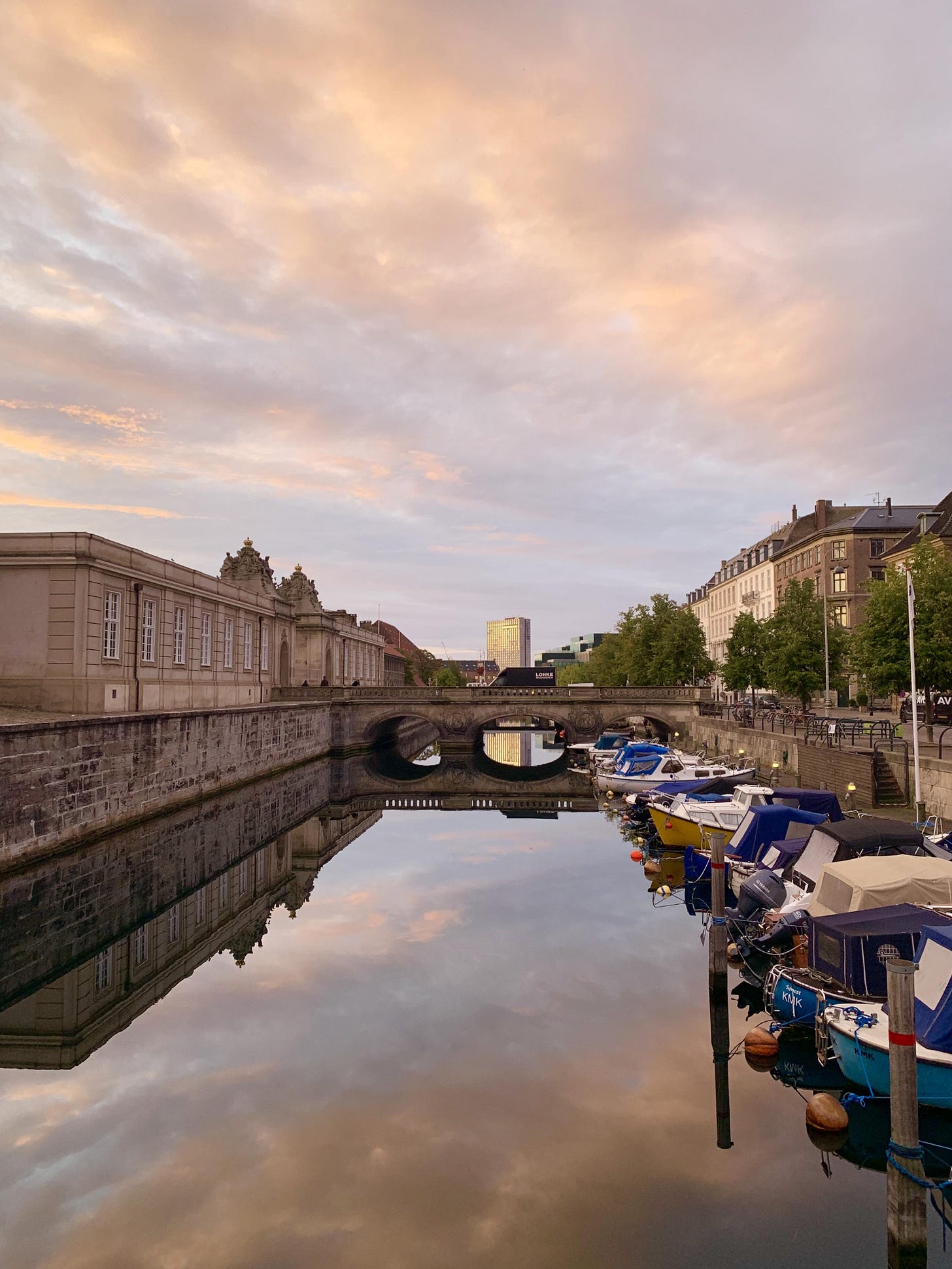
🏠 Owning Less Gives You More Time
By now, you’ve probably heard me tell the story of our international move many times — we were living in a 2200 sq foot house in Wisconsin when we decided to downsize to a Minnesota loft less than half that size, ultimately landing in a 750 square foot apartment in Copenhagen (our full home tour is right here) with 9 boxes and a dog brought over on our Icelandair flight.
And while my American brain initially struggled with the idea of owning so little, I quickly realized that owning less is a form of (actual) freedom.
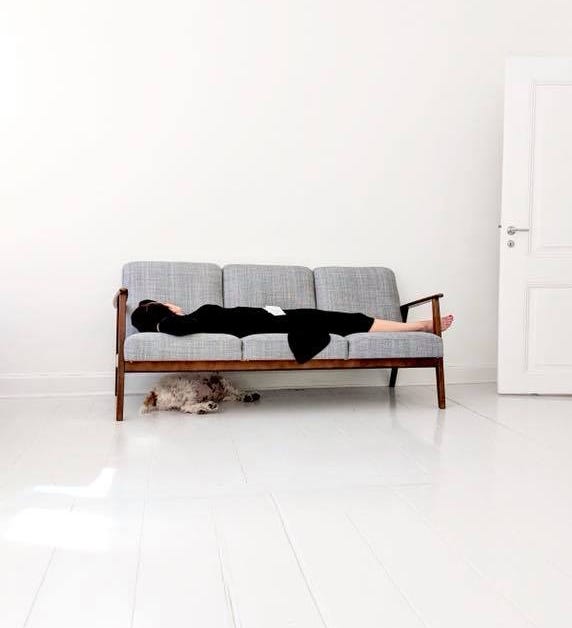
Imagine being able to deep clean your entire home in under 30 minutes? Getting to the weekend and being able to do whatever you want because that long list of yard work doesn’t exist? Even simple tasks like putting away groceries or cooking dinner blew my mind because they were so much faster in our smaller space.
The other thing I didn’t consider, was the mental bandwidth being occupied by all that stuff. The more you own, the more stuff you are keeping an inventory of in your head. This was something I didn’t even realize I was doing until the labor of it was gone from my brain.
Ultimately, the less you own the more time you have for other things. Simple as that.
The idea of Scandinavian minimalism is more of an interior design trend than a rule, and I can promise that not every Danish home looks like the ones in Scandinavian Standard. However, I’ve discovered that there are aspects of Danish culture and society that seem to encourage simplicity:
Third Spaces: these are public spaces outside of your home or work where you can spend time, ideally without needing to spend money. Libraries, parks, squares, a perfectly placed sunny bench. When the entire city feels like your home, you might not feel like you feel like you need such a large one.
Small homes and limited storage: People tend to fill the space they have — and you see this in the US where the average home size is over 2400 sq feet with ample storage space which is often not included in that square footage total — compared to 1400 sq feet in Denmark — where closets and built-in storage options are often non-existent. When everything you own needs to be out and on display, you’re much more likely to only accumulate the things you actually need.
Robust sharing and swapping services: In our last building we had a shared space where we could access things like a ladder, drill, saw, sun chairs and other tools or equipment that made sense to share, rather than everyone in the building having their own. Denmark also has great services for selling, swapping, or giving items away and extensive recycling centers where you can drop off old books, carpets, kitchen items, etc. and allow them to be used or repurposed by someone else.
Pedestrian-friendly infrastructure: If you live in a walkable/bikeable city, it feels more encouraging to get outside and utilize public spaces because getting there is easy — plus it’s a time-saving multi-tasker because you are also getting exercise — meaning you aren’t spending hours a week inside a gym or fitness class (or taking up space in your home with fitness equipment).
⏰ Less Work Hours Lead to More Productivity
Denmark has a standard 37-hour work week, with some industries aiming closer to 35-hours (or sometimes a 4-day workweek). And while I love that shorter, more-reasonable hours are the norm for many in Denmark, its actually the mindset surrounding it that I find fascinating.
If you are working more than your colleagues, you aren’t likely to be seen as hardworking or impressive the way you might be in a US office. Instead, your colleagues and superiors are likely to wonder why you’re so inefficient? Why you’re struggling with time management? Or why you don’t have any hobbies?
Studies show that a shorter work week typically increases productivity, output, and job satisfaction. Just a slight change in schedule or a bit of flexibility can save parents the added cost and stress of securing after-school care (a huge burden for many American families). Working less leads to positive health outcomes across the board. Technology has helped us exponentially increase productivity and output in nearly every industry over the past two decades — and yet some countries are still apprehensive to adjust?!?!
If I put on my tinfoil hat for a moment, I’d tell you that I think one reason work weeks in the US haven’t adjusted, is the fear of what Americans would do with a modicum of leisure time (hint: they might have time to organize against all the crappy systems they’re currently enduring…we saw this during the pandemic).
🤑 Time Tax Adds Up
I think the most common compliment I hear about Denmark from Americans living here is “Things just work.”
Because where we come from, things often don’t. And even the things that do “work”, will require countless hours of your time and energy in order to access.
This is called a time tax — the hidden, indirect costs we pay in terms of time and effort when navigating (usually government) systems.
And honestly I didn’t realize just how high the time tax is for Americans until I saw it done differently and experienced a system that aims to save you time and energy, rather than cost you time and energy.
Denmark stands out as a global leader in digital organization and efficiency (I’m so proud 🥹), frequently topping the UN's rankings for citizen satisfaction with government services. This isn't accidental; it's a deliberate commitment by the Danish government to ensure usability, inclusion, and accessibility across all public sectors in order to reduce the time tax burden on citizens.
Time Tax is one of those things that you can’t unsee once you see it, and experiencing this in my own life has made me much more conscious of how I’m using others’ time — whether its how I structure a tutorial or creating clear support documentation for my clients — I always consider how I can save people time, reduce administrative overhead, and eliminate unnecessary stress because I know that time is money (honey 😄) and it really does make a difference.
HOW I CAN HELP:
🙋🏻♀️Ask me a question, submit feedback, or suggest a topic right here.
💻 Bring me on board to design your website, create digital products, set up your *very own* Substack, or optimize the backend systems for your business with my Project Packages.
📞Have regular calls with me to work through goals, get accountability, plan your next big launch, or talk business strategy with a Call Package.
📝 Visit my Paper Goods Shop for planners, calendars, and more (take 10% off with the code SUBSTACK at checkout).
📊 Visit my Resources Page for free downloads, spreadsheets, and eBooks.
Other posts you might enjoy:
Tour Our Copenhagen Apartment 🏚️
This week I thought it would be a fun and very cozy distraction to invite you into our home for a cup of coffee and a tour!
5 Truths About Moving Abroad 🌍
In 2016 we did a lot of traveling. We kayaked and camped through the Exuma Cays (still one of my favorite trips to date), spent a month backpacking through Japan and Thailand, and then started 2017 off with a road trip through Germany and Austria.


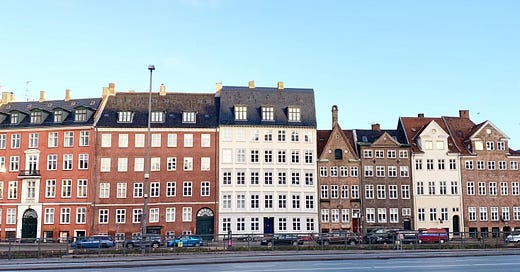


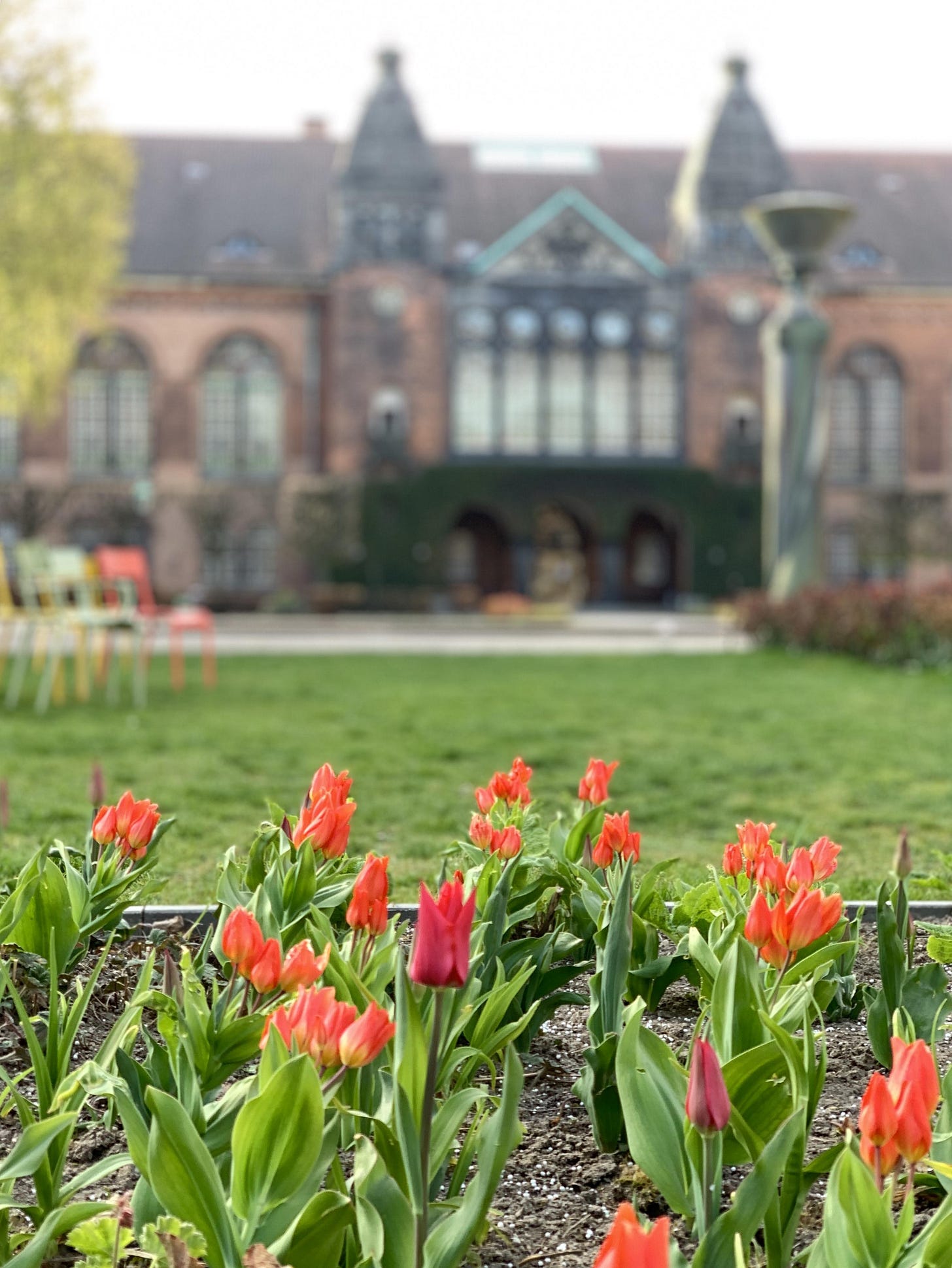
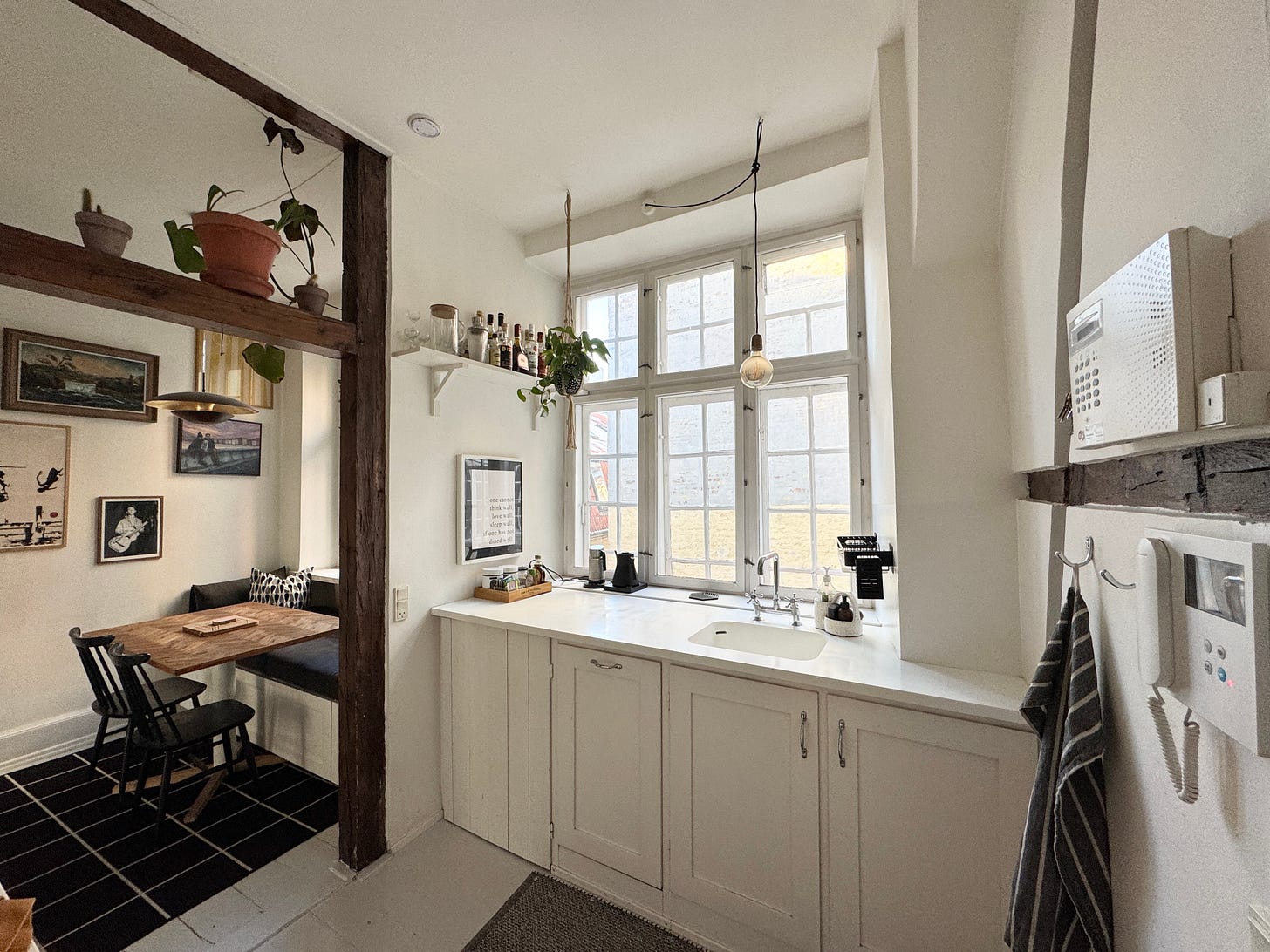
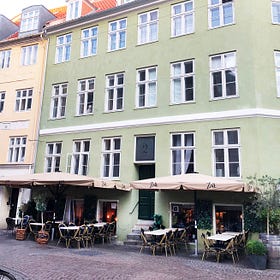

Love this! I am a firm believer that shorter work weeks would equal more productivity, but it’s tough to get traction on the concept with close-minded elected officials here in the US! I also LOVE a Monday start calendar, so thanks for the google calendar tip! And don’t get me started about the time tax! Trying to navigate healthcare/medicare for my aging mother could be a full time job on its own! It’s infuriating how difficult accessing care and resources is…and I’m lucky enough to have the kind of job that affords me flexibility to spend time during my day navigating these challenges. Too many people don’t have the luxury of time and flexibility, which often means they don’t get the care or resources they need. It’s a horrific “system”, and only getting worse under the current administration.
I love this! I made the switch to Monday start on my calendar/planner more than 5 years ago and LOVE it! I just wish it was easier to find a wall calendar in the US :)